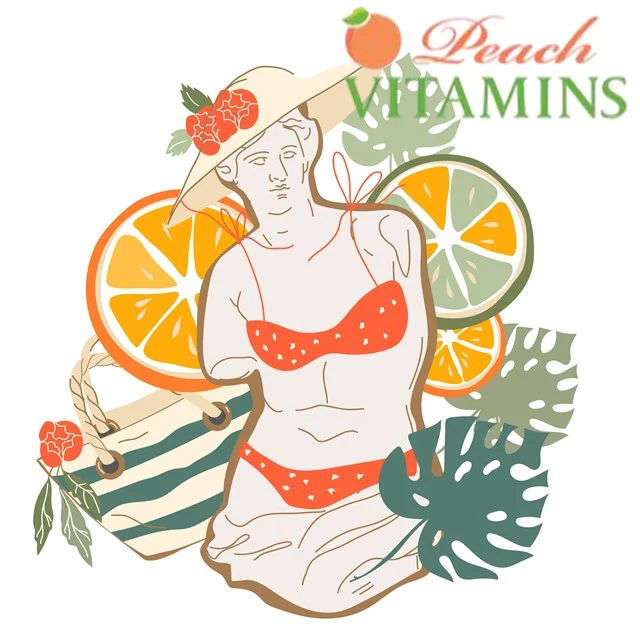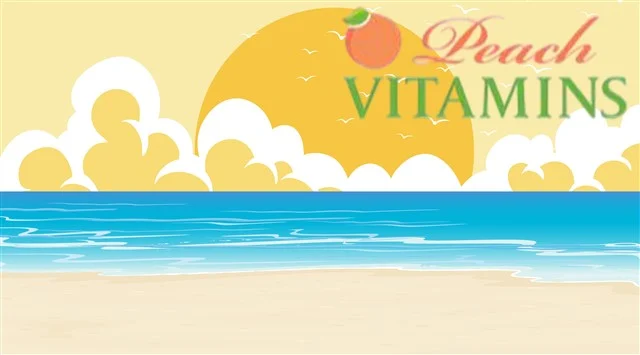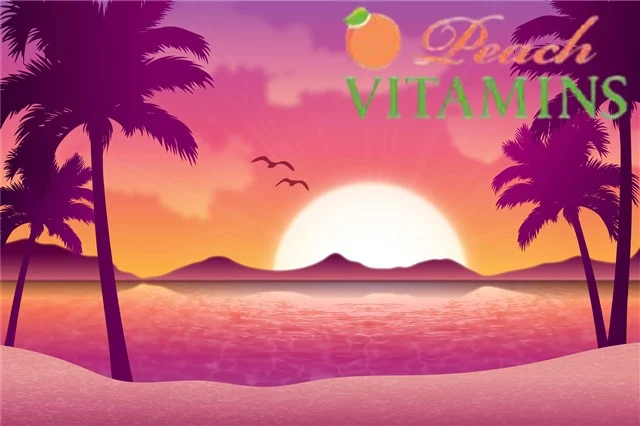What’s the Difference Between South Beach Diet and Mediterranean Diet?
Are you looking for a diet plan to help you lose weight fast without feeling hungry? Do you want to learn how to make healthy food choices that taste great? Or do you want to get fit and feel healthier?
Two diets are often recommended as being the healthiest diets available. These diets include the South Beach Diet and the Mediterranean Diet.
This article will compare these two diets to see which is best for you. We’ll also examine why both diets work and which might be right for you.
I will share everything you need to know about each diet, including pros and cons, cost, recipes, and ingredients.

What Is the South Beach Diet?
Cardiologist Arthur Agatston created the South Beach diet. He developed this plan after noticing that many patients with heart attacks were overweight. The diet focuses on cutting out foods containing saturated and trans fats and replacing them with healthy alternatives.
The diet includes whole grains, fruits, vegetables, fish, nuts, seeds, beans, and olive oil. It also recommends limiting alcohol consumption and avoiding processed foods.
The South Beach diet is based on the Mediterranean, which originated in Greece and Italy centuries ago. Both diets emphasize plant-based food sources over animal protein. However, the South Beach diet differs slightly because it restricts some types of fat and encourages healthier oils.
Healthy Fats Are Essential
Fats are essential for our health. They’re important because they help us absorb vitamins, minerals, and nutrients. But too much fat can be bad for us. And some fats are better than others.
Saturated fat is usually considered unhealthy because it raises cholesterol levels. However, unsaturated fats—such as those found in olive oil, avocados, nuts, seeds, fish, and fatty cuts of meat—are healthy. The South Beach Diet emphasizes monounsaturated and polyunsaturated fats, often heart-healthy.
Polyunsaturated fats include omega-3 fatty acids, which may reduce inflammation and improve cardiovascular function. Monounsaturated fats include oleic acid, which may lower LDL (bad) cholesterol and triglycerides. Both types of fats are essential for optimal health.
To avoid these unhealthy fats, eat more plant-based foods, such as fruits, vegetables, whole grains, nuts, seeds, beans, and tofu. These foods contain unsaturated fatty acids, which aren’t harmful when eaten in moderation.
Benefits of Olive Oil
Olive oil is a healthy fat that contains many health benefits. The most crucial advantage of olive oil is its ability to lower cholesterol, making it an excellent substitute for butter and margarine when baking.
Another benefit of olive oil is that it helps prevent heart disease. Olive oil contains antioxidants called polyphenols, which help protect against free radicals that cause cell damage. Free radicals are produced during normal metabolism, so eating foods rich in antioxidants may reduce the risk of cardiovascular diseases.
Olive oil is also used in salad dressings because it adds flavor and texture. But be careful not to use too much olive oil since excess amounts can lead to weight gain.
Lowering Cholesterol Reduces Heart Disease
No question that lowering cholesterol reduces heart disease. But there’s another benefit to eating healthy fats, namely, that they help lower bad LDL cholesterol (LDL) and raise good HDL cholesterol (HDL).
Research shows that when people eat foods rich in monounsaturated fatty acids—such as olive oil, nuts, avocados, and olives—their total cholesterol drops, and their LDL decreases. These foods may be just as effective at reducing heart disease risk as traditional cholesterol-lowering drugs.
But here’s the catch: People who eat diets rich in saturated fat tend to have higher HDL than those who eat diets rich in unsaturated fat. So although a diet rich in saturated fat lowers LDL, it raises HDL.
This makes sense because saturated fat increases triglycerides, which are stored in the liver and released through VLDL particles. These particles contain large amounts of triglyceride molecules, and when they’re released, they cause the liver to produce more VLDL particles. The result is that the liver has more triglycerides and fewer HDL particles.
When this happens, the ratio of triglycerides to HDL rises, causing the HDL level to drop.

Is the South Beach Diet More Effective Than the Mediterranean Diet?
Both diets are effective at helping people lose weight. Lean proteins, healthy fats, fruits, vegetables, whole grains, and nuts are the focus of the South Beach diet. The Mediterranean diet emphasizes fish, olive oil, beans, fruit, vegetables, and whole grains. Both diets emphasize fresh foods over processed foods.
However, there are some differences between these two popular diets. For example, the South Beach diet encourages portion control, whereas the Mediterranean diet does not. Also, the South Beach diet limits fat intake, whereas the Mediterranean diet allows for small amounts of saturated fat.
Mediterranean diets are generally less restrictive than South Beach diets. However, the Mediterranean diet may be better suited for those who prefer a more relaxed lifestyle.
What Foods Are Allowed on the South Beach Diet?
The South Beach diet allows certain foods, including alcohol, dairy, eggs, fish, poultry, red meat, shellfish, nuts, seeds, soybeans, and vegetables. However, these foods must be consumed in moderation. In addition to fruits, vegetables, whole grains, beans, seafood, lean meats, and olive oil, the Mediterranean diet allows a wide variety of healthy foods.
Both diets allow some processed food, but the South Beach diet limits them to only two servings per week. The Mediterranean diet allows three servings per day.
Regulating fruit and vegetable portions is essential because these foods provide fiber, vitamins, minerals, antioxidants, and phytochemicals. Fiber helps you feel full longer, so you don’t overeat. In addition, many studies show that consuming plenty of fiber can reduce your risk of cardiovascular disease, diabetes, obesity, and even depression.
Fiber also slows digestion, allowing you to consume less food without feeling hungry. Because fiber reduces calorie absorption, it can help you lose weight.
Low-glycemic carbohydrates such as brown rice, quinoa, oats, barley, and sweet potatoes are allowed on both diets. However, the South Beach diet discourages sugary carbs like white bread, pasta, and cookies.

What Foods Are Not Allowed on the South Beach Diet?
High carbohydrate intake is discouraged on the South Beach diet, and you can’t even drink regular soda on the South Beach diet! You also cannot consume any bread, pasta, rice, potatoes, corn, sugar, white flour, or starchy vegetables.
On the Mediterranean diet, you can eat moderate amounts of bread, pasta, and rice, as well as potatoes, corn, and sweet potatoes.
Working with a dietitian nutritionist will help you develop a plan for your body’s needs. Talk to a dietitian nutritionist today to learn more about changing your diet.
What to Eat for Breakfast on South Beach Diet?
Breakfast is the most important meal of the day, and a proper breakfast can help you lose weight, feel better, and be healthier. But what should you eat for breakfast on the South Beach Diet?
On the South Beach Diet, you’re allowed two eggs per week. So what should you eat for your morning egg scramble?
Eggs are packed with protein, vitamins, minerals, and healthy fats. They’re also rich in Choline, which helps support brain health, and Choline is beneficial during pregnancy and early childhood development.
But eggs aren’t just great for breakfast; they’re versatile enough to serve at any mealtime. Try them in omelets, scrambles, frittatas, quiches, and salads. And when you’re craving a sweet treat, try adding some fresh fruit to your scrambled eggs for a delicious breakfast dessert.
If you’re looking for a quick snack between meals, consider making a batch of Egg Beaters® Scramble Mix. This mix includes four whole eggs, six egg whites, five grams of fiber, and only fifty calories. Plus, there’s no cholesterol, sodium, saturated fat, trans fat, or added sugars.
And because this recipe uses natural ingredients, you won’t find artificial flavors, preservatives, or additives.
What Are Some Healthy Foods Found in Both Diets?
Both diets emphasize healthy foods, including fruits, vegetables, whole grains, lean proteins, nuts, seeds, beans, fish, poultry, eggs, dairy, and oils. However, there are some differences between these two popular diet plans.
Eating plenty of vegetables and fruits is essential for good nutrition. You’ll get plenty of fruits and vegetables on both diets through snacks and side dishes. What makes one diet superior to another depends on personal preferences.
For example, the Mediterranean diet might be better for you if you prefer savory foods over sweets.
However, the South Beach Diet might be better if you love desserts.
The South Beach Diet focuses on limiting unhealthy foods while emphasizing healthy ones. For example, you’ll restrict sugary drinks, fried foods, and red meat.
One difference is that South Beach emphasizes eating small portions throughout the day, whereas Mediterranean Diet focuses on having three meals daily. Another difference is that South Beach Diet encourages consuming alcohol, whereas Mediterranean Diet discourages drinking alcohol.

How Long Will It Take To See Results From Either Diet?
While the Mediterranean diet emphasizes fish, seafood, olive oil, poultry, red wine, dark chocolate, and fresh fruit, both diets work well, but each has its pros and cons.
Metabolic risk factors such as blood pressure, body mass index, fasting glucose levels, triglycerides, and waist circumference tend to improve after following either diet plan.
However, both diets require lifelong commitment and self-control. You’ll need to change your lifestyle to see results from either diet.
The South Beach diet may be proper if you want to lose weight fast. But the Mediterranean diet may be better suited if you want to maintain weight loss over the long term.
How Many Calories Should You Consume Each Day?
The South Beach diet recommends consuming no more than 7% of daily calories from saturated fats, while the Mediterranean diet allows 10%. Both diets limit sodium consumption to 1,500 milligrams per day.
However, the South Beach diet limits carbohydrates to 20 grams daily, while the Mediterranean recommends 30 grams. The South Beach diet also restricts alcohol consumption to 2 drinks per week, while the Mediterranean diet encourages wine drinking.
While the South Beach diet may be better suited for those who need to lose weight quickly, the Mediterranean diet is recommended for long-term health benefits.
Which One Should My Doctor Recommend?
However, there are some differences between these two popular diets. Some people prefer the South Beach diet, which requires fewer restrictions than the Mediterranean diet, and others like the Mediterranean diet because it allows them to eat more food.
Your doctor should recommend the diet plan that works best for you. Your doctor may suggest either diet based on your health history and current lifestyle. They consider your preferences when recommending a diet plan.
If you’re looking to lose weight quickly, the Mediterranean diet is probably better suited for you. However, the South Beach diet may be a better option if you’re trying to maintain your weight.
Final Thoughts
The South Beach Diet vs Mediterranean Diet debate will continue until more research is done. Until then, both diets offer similar health benefits.
Rapid weight loss can help you feel good about yourself, but maintaining a healthier body weight is essential for overall health. If you want to lose weight, you’ll find that the South Beach or Mediterranean Diet is likely the best choice.
Schedule a free consultation with Ayurvedic practitioner Cosmic Mike to learn more about regulating blood sugar and improving digestion. Meal planning is an essential part of any healthy diet.
